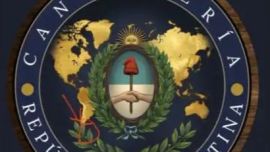Over the last two centuries, governments of one kind or another have put a wide variety of economic systems to the test. Some performed well, others failed dismally, so it might be thought that, by now, all serious politicians would have plumped for those that have worked best and discarded those that only served to perpetuate the extreme poverty that has always been the lot of most human beings.
Needless to say, this has not been the case. In most societies, liberal capitalism – the only system which delivers enough goods to allow almost everyone to live far better, and longer, than even the wealthiest did in former times – is despised by clerics, politicians who are eager to take charge of everything in sight and, of course, intellectuals who regard themselves as progressives. Despite all that has happened since the Industrial Revolution, many bright people cling to the notion that it would be far better to let bureaucrats who share their opinions manage their country’s economy than to allow entrepreneurs to play a leading role in society. When such ideologues reach power, they can be relied upon to make a mess of things.
Until late last year, Argentina remained under the sway of politicians who defended a “model” which had shown itself to be worse than useless and, with inflation rising month after month and almost half the population subsisting below the poverty line, looked likely to come crashing down before the elections were held. They took it for granted that fear of what would be in store for the majority if anyone tried to prevent such a disaster by putting the economy in order would ensure that they stayed in power, but then, to almost universal astonishment, a strange character who said he took advice from a deceased dog and enjoyed the support of heavenly forces arrived on the scene and swept them aside. Brandishing a chainsaw, Javier Milei promised to reduce public spending to a bare minimum and, while about it, to deprive members of the “political caste” of the money that came their way through illicit channels.
Though doing this is proving to be a bit harder than he presumably imagined when he was a fixture on talk-shows, Milei has already achieved enough to make the stern technocrats who run the International Monetary Fund sit up. They are so accustomed to being berated for their cruelty by people who are convinced that “austerity” is evil and decent governments everywhere should always give money, which must exist somewhere, to those who are hard up, that the arrival of a Latin American president who treats them as sentimental softies must have come as a shock.
Will Milei’s daring experiment work and give Argentina an economy that is at least as efficient as those of what is known as the developed world? Or, as many who on the whole agree with much of his diagnosis fear, will the cure he is intent on subjecting it to prove to be so painful that it kills the patient? Even those who would dearly like to see Argentina have a “normal” economy – by which they mean one that lets the market determine most prices, the national currency is reasonably solid, foreign trade is not seen as a menace, taxes are low and businessmen can do their stuff unimpeded by thuggish trade-union bosses or nitpicking bureaucrats out to tie them down – suspect that before too long Milei’s all-or-nothing approach could provide his foes with a chance to unseat him. Many would be more than happy to speed him on the way out.
Before Milei took office, Kirchnerite operatives assumed that, after a couple of months of remorseless belt-tightening, millions of people would take to the streets in protest and, by doing so, would force him to flee from the Pink House or Olivos by helicopter. Much to such individuals’ surprise, there are no signs of this happening any time soon. It would seem that Milei has become the principal beneficiary of the strong populist strain in Argentine politics that, for several decades, induced millions of poverty-stricken people to remain loyal to memories of Juan Domingo Perón and put their trust in his political heirs even though they were in large measure responsible for their unenviable plight.
The personality cult that has formed itself around Milei evidently attracts not only young people (especially males) in the dilapidated badlands that border on Buenos Aires city who have good reason to welcome a politician who offers them something different from what the Peronists have given them, but also billionaire magnates and politicians in other parts of the world who are desperately looking for alternatives to an uninspiring status quo. What they are looking for is a set of apparently new proposals that could attract people who have become disillusioned with the leftist, middle-of-the-road or moderately right-wing fare dished out by standard-issue politicians.
Meanwhile, in Argentina many men and women who loathe Kirchnerism and think the unaffordable public sector should be downsized have started to criticise Milei for talking trash and behaving like a “populist.” Some even compare him to Cristina Fernández de Kirchner. They overlook the fact that, had it not been for Milei’s ability to establish a personal connection with others much as did Perón in his day and, after him, Carlos Menem and then Cristina, his term in office would have already ended in tears.
In democratic countries, all politicians have to be “populist.” Unless they manage to persuade enough voters – many of whom will be simple souls incapable of understanding fairly straightforward economic theories and political doctrines who have little interest in debates – that in some mysterious way they are their friends and will look after them, they will remain in the shadows. It is possible that Milei did win a couple of votes because, like him, those who cast them greatly admired the late Friedrich von Hayek and other luminaries of the Austrian School, but most of the 14,554,560 he received came from people who had never heard of them. What did impress them was Milei’s fiery willingness to wage war on the “political caste” that had done so much harm to Argentina and the feeling that he had something important in common with them.



















Comments